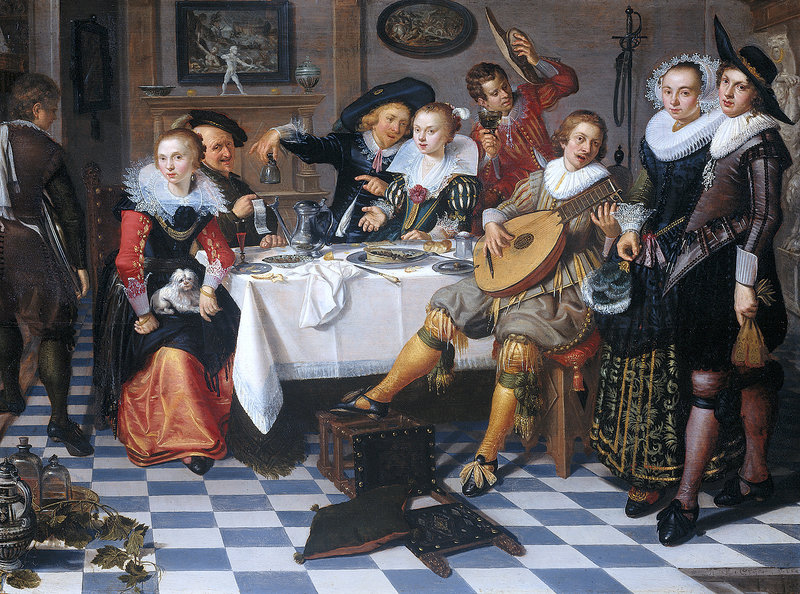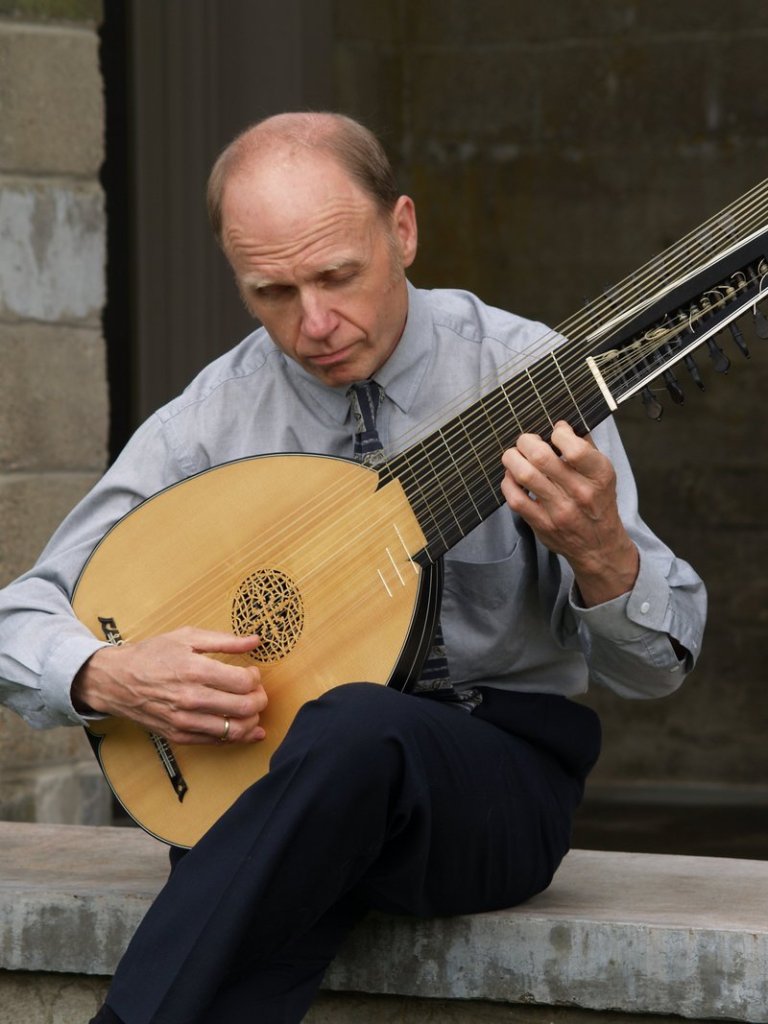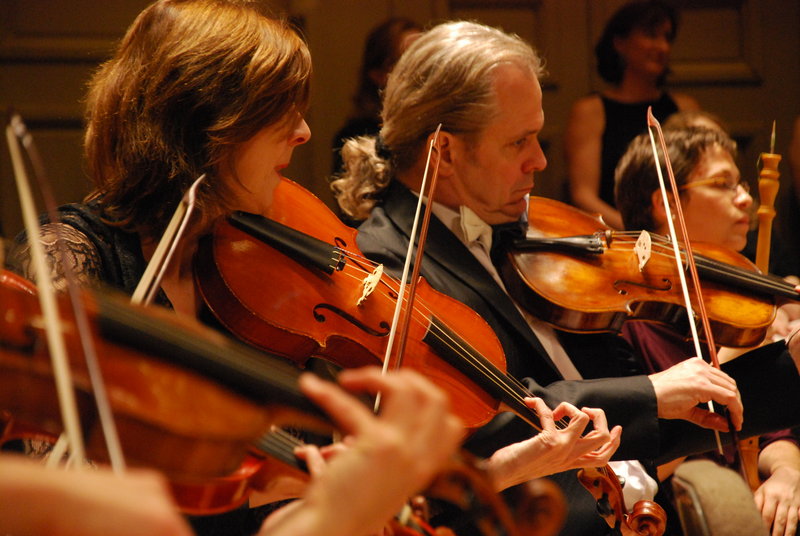Even the term sounds ponderous: Early music.
It conjures images of rigid musicians performing on delicate instruments in quiet, serious concert halls. The weight of centuries hangs in the balance.
Fortunately, early music defies that dusty portrait.
Early music refers to the authentic performance of music from the baroque and classical periods, written by the likes of Bach, Mendelssohn and Handel, on historical instruments. Depending on the talents of the musicians and singers, early music can be lively, exciting and thrilling, said Timothy Burris, a Portland-based lute player and early-music proponent.
“Early music is not some big, deep dark mystery,” he said. “It is not fringe anymore. It has hit the mainstream and is more accessible than you might think.”
Portland plays host to early-music fanfare in coming weeks.
The Portland Conservatory of Music presents the inaugural Portland Early Music Festival Friday through Oct. 23 at Woodfords Congregational Church. It’s designed as a bit of a primer for the early music experience.
Fifteen musicians will present music from England, France, Germany and Italy, composed from the late 1500s through the mid-1700s. Master classes and lectures are part of the festival programming.
On Oct. 29, Portland Ovations offers a concert by the Handel and Haydn Society, the Boston-based ensemble credited with spawning the early-music revival in the 1980s that continues today. That concert at Hannaford Hall in the Abromson center at the University of Southern Maine will include a pre-performance discussion about historical instruments in contemporary culture.
Beginning with the latter half of the 20th century, orchestras that favored early music repertoire began paying attention to their instruments. Eager to replicate the sounds that Bach and his contemporaries had in mind when they wrote their music, the modern-day musicians insisted on historically accurate instruments based on those from the 1600s and 1700s.
Instead of a piano, they performed on the harpsichord. Instead of a cello, they played the viola de gamba. Instead of a flute, they favored the recorder.
“People became more interested in historically accurate instruments, and with that the performances became more popular,” said Toby Rzepka, a Portland-based instrument maker.
He learned to make period instruments in England, where he enrolled in a two-year program. He practices his craft at Acoustic Artisans on Forest Avenue.
In addition to the viola de gambas, Rzepka also makes classical guitars. The market for the historic instruments is small, he admits. He sells a couple a year.
One of his instruments is based on a 1624 instrument originated by the London maker Henry Jaye. That instrument is now in a museum in Paris. His other model is based on a 1695 instrument by a Parisian named Romaine Cheron. That instrument is in a museum in Brussels.
The conservatory’s Early Music Festival taps into the growing interest in early music, Burris said.
A Fulbright scholar and graduate of the Royal Conservatory, Burris moved to Portland in 1998 uncertain what he would find in the early-music realm. He was impressed by the quantity and quality of local players.
“We seem to have a disproportionately large talent pool here for the size of the population. We have a lot of people here with considerable national and international experience,” said Burris, who teaches lute at Colby College in Waterville.
People who attend the Portland festival will hear music that was played in the courts and salons of 16th-, 17th- and 18th-century Europe. They will hear the lute, harpsichord, cello, viola de gamba and violin.
The Portland early-music scene has been helped along by a few key players. Among them has been St. Luke’s Cathedral, which has sponsored an early-music series that has evolved over the past few years from three concerts to four and five this year.
At the same time, USM voice professor Bruce Fithian has molded the Saint Mary Schola, based at the Episcopal Church of Saint Mary the Virgin in Falmouth, into a fully functioning performing arts group that presents three concerts annually. The Schola is now in its fourth year.
“Portland has grown up,” said Fithian, who sings internationally and is closely associated with the early music scene in Boston.
Fithian’s attraction to the music stems from its “incredible richness. There are not big, loud sounds in early music. I think it tends to draw you into a more spiritual mood. In our day and age, we are overwhelmed with technology and information. Sometimes to come to a quiet, intimate setting is a nice change of pace.”
Marie-Helene Bernard, executive director of the Handel and Haydn Society, said early music appeals to listeners who favor the intimacy of a small ensemble over a large orchestra.
“Early music makes you hear and listen to things that you could never hear with a major orchestra,” she said. “It’s hard to define early music, because there is such variety in the writing, in the music and in the sound. It’s a matter of texture, the sounds and details and subtleties that you hear in music. And of course, the sheer beauty of the repertoire.”
Staff Writer Bob Keyes can be contacted at 791-6457 or:
bkeyes@pressherald.com
Twitter: pphbkeyes
Send questions/comments to the editors.






Success. Please wait for the page to reload. If the page does not reload within 5 seconds, please refresh the page.
Enter your email and password to access comments.
Hi, to comment on stories you must . This profile is in addition to your subscription and website login.
Already have a commenting profile? .
Invalid username/password.
Please check your email to confirm and complete your registration.
Only subscribers are eligible to post comments. Please subscribe or login first for digital access. Here’s why.
Use the form below to reset your password. When you've submitted your account email, we will send an email with a reset code.